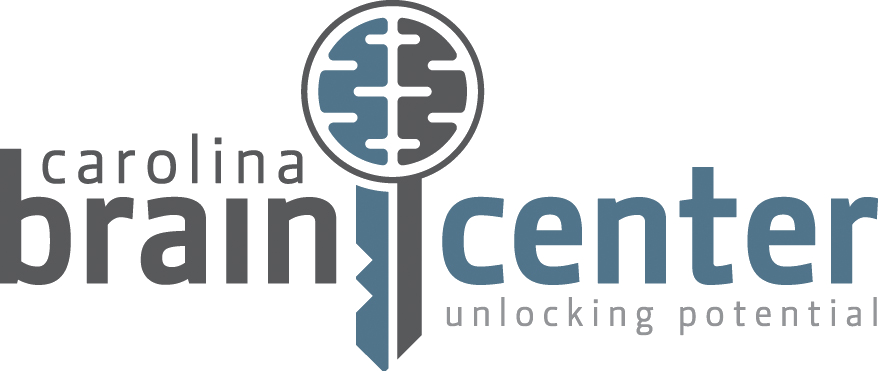As we navigate through the complexities of aging, our focus often shifts towards maintaining physical health, sometimes overlooking an equally important aspect: our cognitive health. The brain, with its intricate web of neurons and synapses, is the command center for all our thoughts, actions, and memories. But as we age, it’s natural for some cognitive functions to decline. This doesn’t mean, however, that we’re powerless in the face of aging. On the contrary, understanding and actively monitoring our cognitive health can lead to a richer, more vibrant golden age. I’m Dr. Dane, a Chiropractic Neurologist at Carolina Brain Center, and today, I’m going to share insights into how yearly baseline testing, along with effective strategies and exercises, can significantly enhance cognitive health as we age.
Understanding Cognitive Aging
The aging process brings about numerous changes in the brain, affecting memory, attention, and problem-solving skills. While some degree of cognitive decline can be considered a normal part of aging, it’s crucial to distinguish between normal age-related changes and signs of more serious conditions like dementia or Alzheimer’s disease. Early detection and monitoring play pivotal roles in managing cognitive health. By staying informed and vigilant, we can identify changes in brain function early and implement strategies to mitigate their impact.
The Importance of Yearly Baseline Cognitive Testing
Yearly baseline cognitive testing serves as a cornerstone for understanding and preserving brain health. These tests provide a snapshot of an individual’s cognitive abilities at a specific point in time, which can be invaluable for detecting subtle changes over the years. Baseline testing is not just about finding problems; it’s a proactive approach to brain health, enabling us to tailor personalized strategies for cognitive maintenance and improvement.
Why is baseline testing so critical? First, it establishes a standard against which future tests can be compared, allowing for the early detection of cognitive decline. This is particularly important for conditions like dementia, where early intervention can significantly alter the disease’s trajectory. Second, baseline testing can help identify areas of cognitive strength and weakness, guiding personalized interventions that target specific needs.
Strategies for Enhancing Cognitive Health
Maintaining and enhancing cognitive health in our later years involves a multifaceted approach that includes physical exercise, mental stimulation, and social engagement.
– Physical Exercise: Regular physical activity is not only good for the heart; it’s also great for the brain. Activities like walking, swimming, or yoga can increase blood flow to the brain, supporting the growth of new neural connections. Exercise has been shown to improve memory, attention, and problem-solving skills, making it a critical component of any cognitive health strategy.
– Cognitive Exercises: Just as our bodies need exercise to stay fit, our brains need mental stimulation to maintain agility. Engaging in brain games, puzzles, or learning new skills can strengthen neural pathways and improve cognitive functions. Consistent mental activity encourages the brain to adapt and rewire, a process known as neuroplasticity, which is essential for maintaining cognitive health as we age.
– Social Engagement: Human beings are inherently social creatures, and maintaining social connections is vital for our mental health. Social activities and meaningful relationships can reduce stress, depression, and anxiety, all of which can negatively impact cognitive function. By staying socially active, we stimulate our brains in diverse and complex ways, reinforcing cognitive resilience.
Implementing these strategies into our daily lives requires commitment and perseverance, but the benefits they offer for our cognitive health are immeasurable. As we explore further the roles of nutrition and regular appointments with a Chiropractic Neurologist, remember that each step taken is a step towards a healthier, more vibrant brain.
The Role of Nutrition in Cognitive Health
Nutrition plays a pivotal role in every aspect of our health, including our cognitive function. The brain requires a constant supply of nutrients to operate effectively, and certain diets and nutrients have been shown to have a profound impact on reducing the risk of cognitive decline.
– Brain-Boosting Nutrients: Omega-3 fatty acids, found in fish, flaxseeds, and walnuts, are essential for brain health, contributing to improved memory and mental function. Antioxidants, present in berries, leafy greens, and nuts, protect the brain from oxidative stress, reducing the risk of cognitive decline. Vitamins E, D, and B, along with minerals like magnesium and zinc, also play critical roles in brain health, supporting neural function and protecting against age-related damage.
– The Mediterranean Diet: Research has consistently shown that the Mediterranean diet, rich in fruits, vegetables, whole grains, olive oil, and lean protein, is associated with a lower risk of cognitive decline and dementia. This diet’s emphasis on plant-based foods, healthy fats, and moderate fish and poultry consumption provides a balanced intake of essential nutrients for optimal brain health.
Incorporating these nutrients into your daily diet can support brain function and protect against cognitive decline. However, nutrition is just one piece of the puzzle. Combining a healthy diet with physical and mental exercise and regular check-ups can create a comprehensive approach to maintaining cognitive health.

The Benefits of Regular Appointments with a Chiropractic Neurologist
A Chiropractic Neurologist specializes in the diagnosis and treatment of neurological conditions using a holistic approach that considers the intricate relationship between the nervous system and the rest of the body. Regular appointments with a Chiropractic Neurologist can offer several benefits for those looking to maintain or improve their cognitive health.
– Personalized Assessments: Through detailed examinations and assessments, a Chiropractic Neurologist can identify specific areas of concern or potential risk factors for cognitive decline. These assessments allow for the creation of personalized treatment plans that address individual needs and goals.
– Non-Invasive Treatments: Chiropractic Neurologists utilize a range of non-invasive treatments, including chiropractic adjustments, therapeutic exercises, and lifestyle counseling, to support brain health. These treatments can improve neural connectivity, enhance blood flow to the brain, and promote overall wellness.
– Preventative Care: Regular check-ups enable early detection of changes in cognitive function, allowing for timely intervention. A Chiropractic Neurologist can provide guidance on preventive strategies, including exercise, diet, and cognitive activities, to maintain brain health and prevent or slow down cognitive decline.
Practical Tips for Implementing Cognitive Health Strategies
To make these strategies a part of your daily routine, consider the following tips:
– Set Realistic Goals: Start with small, achievable goals and gradually incorporate more activities and dietary changes into your routine.
– Engage in Activities You Enjoy: Choose exercises, brain games, and social activities that you find enjoyable and fulfilling.
– Seek Professional Advice: Consult with a Chiropractic Neurologist or a nutritionist to tailor strategies that fit your specific health needs and lifestyle.
By embracing a holistic approach that includes proper nutrition, regular physical and mental exercise, and the expertise of a Chiropractic Neurologist, you can take proactive steps toward maintaining and enhancing your cognitive health well into your golden years.
The journey to maintaining cognitive health is multifaceted, requiring attention to physical activity, mental stimulation, social connections, and nutrition. Regular appointments with a Chiropractic Neurologist complement these efforts by providing personalized care and preventive strategies tailored to your unique needs. Together, these approaches form a comprehensive plan for safeguarding your cognitive health, allowing you to enjoy a vibrant, active lifestyle for years to come.
Take Control of Your Cognitive Health
Now is the time to take control of your cognitive health. Whether you’re noticing changes in your cognitive abilities, interested in preventive measures, or simply keen on optimizing your brain health as you age, the path to a healthier brain begins with a single step. Here’s how you can start:
- Schedule Your Baseline Cognitive Testing: If you haven’t already, reach out to a healthcare provider to schedule your first or next baseline cognitive test. This crucial step will help you understand your current cognitive health status and track changes over time.
- Consult a Chiropractic Neurologist: Consider making an appointment with a Chiropractic Neurologist, like us at Carolina Brain Center. Our specialized approach to neurological health can provide you with tailored advice, assessments, and treatments aimed at enhancing your cognitive function.
- Implement Lifestyle Changes: Begin incorporating the strategies we’ve discussed into your daily routine. From adopting a brain-healthy diet to engaging in regular physical and mental exercises, every small change contributes to your cognitive well-being.
- Stay Informed and Engaged: Continue educating yourself on cognitive health and stay engaged with your community. Whether it’s joining a local walking group, enrolling in a new class, or participating in social activities, staying active both physically and socially is key to a healthy brain.
At Carolina Brain Center, we’re dedicated to supporting you on your journey to optimal cognitive health. Our team of experts is here to provide comprehensive care tailored to your individual needs and goals. Don’t wait to take the first step towards a healthier, more vibrant brain.
Contact Carolina Brain Center Today
For more information or to schedule a consultation, visit our website or contact us directly. Let us be your partner in navigating the path to enhanced cognitive health and well-being.
Remember, taking proactive measures to care for your brain is one of the most valuable investments you can make for your future. By embracing the strategies outlined in this article and seeking the guidance of professionals like Chiropractic Neurologists, you’re not just preserving your cognitive health; you’re ensuring a richer, more fulfilling life in the years to come. Take action today for a brighter, healthier tomorrow!

